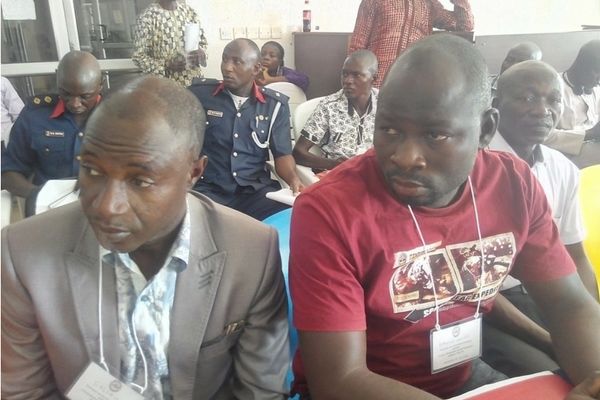Peacebuilding and conflict transformation among farmers and herdsmen in Nigeria
Violent conflict between farmers and herdsmen in Northern Nigeria has left more than 340 people dead and 82,000 more displaced in 2017. The crisis remains a major issue in Nigeria, and the government is not doing much to resolve this menace.

The U.N. estimates that Nigeria is one of the most populous countries on the African continent. More than 55 percent of Nigerians live in rural areas and are either farmers or herdsmen. The need for peaceful coexistence between these folks is paramount if Nigeria is to thrive economically, politically and socially.
It is such a sad event to wake up one day, and realized that [the farm] you have been working for so many years is gone as a result of violent conflict between farmers and herdsmen.
Alfred BobaNigeria generally, and the northern area specifically, is engulfed with pressing crises between farmers and the nomadic herdsmen. Places like Benue State, Taraba State, Nasarawa State, Gombe State, Adamawa State and a substantial part of the Southern part of Nigeria are heavily affected by this ugly situation.
The most recent outbreak of violence killed more than 200 and displaced more than 5,000 people. Most of the displaced people are women and children.
In response to this terrible crisis, grassroots organizers from Church and Society and The United Methodist Church in Nigeria worked hard to provide shelter for the displaced people in various United Methodist buildings throughout the country.
Conflicts between farmers and herdsmen have existed for many years, but have taken a different dimension recently. The land is being harmed significantly by climate change and desert encroachment caused by deforestation, bush burning and chemical fishing. Herdsmen have had to move from place to place in response, trying to find greener pastures for their herd. Herdsmen frequently have confrontations with farming communities who are also dependent on the land.
The grassroots organizers organized their congregations and communities to create solutions to the problem of constant conflict between farmers and herdsmen. These organizers, motivated by the United Methodist Social Principles and rooted in their Christian faith, embarked on peacebuilding and conflict transformation training with communities of farmers and herdsmen. These trainings are ongoing in places Bali, Garba Chede, Mutum-biyu, Lau, and Ngurore in Taraba and Adamawa states.
Nicodemun Herman, one of the key organizers of the peacebuilding training, said, “We are committed to seeing a society that is free of violence from conflict. The conflict between farmers and herdsmen is happening in our communities often and is affecting many members of The United Methodist Church in our region. As a church, we have to put our faith into action to find lasting solutions to this problem.”
Yohanna Nahari, an organizing team leader in Jalingo, said, “The Social Principles of The United Methodist Church helped us understand the dignity of all human beings. As a church, we cannot afford to see people being killed for whatever reason and keep quiet. We are out to engage farmers and herdsmen at the grassroots level to embrace peaceful coexistence with each other.
The organizers are seeking lasting solutions to the conflict. David Villapah said “We have made several visits to the Taraba State House of Assembly to speak to the members of the State Assembly on the need to pass a bill which will protect farmers and provide ranges for herdsmen to care for their animals. We are happy that this bill has been passed. We hope that this will provide relative peace in many communities.”
Our team of grassroots organizers has succeeded in creating peaceful relationships among farmers and herdsman in Sabon Gida, Garba Chede, Ngurore, Lau, Mutum-biyu and Bali. Dialogue training, visiting community leaders, and advocacy at the local, state and national assemblies have led to these successes.
The Rev. Ande I. Emmanuel is the conference secretary of the Southern Nigeria Annual Conference and Church and Society’s lead organizer in Nigeria.